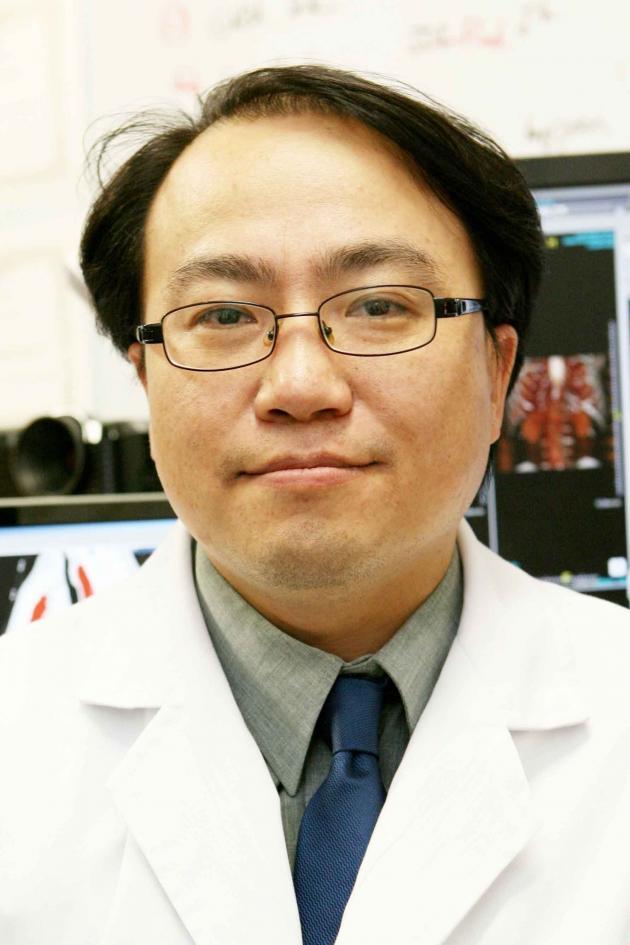Researchers at Asan Medical Center (AMC) have developed a technology for producing unlimited data to train medical artificial intelligence (AI) with only a small number of medical images, the hospital said Thursday.

Until now, it has not been easy to acquire medical data for some illnesses, which limited the training capacity of the medical AI.
The team, led by Professor Kim Nam-kook of the department of convergence medicine at AMC, applied Perlin noise to create an infinite amount of medical image data that can train AI. Using the technology, the team could increase the accuracy of diagnosis of diffuse interstitial lung disease to 90 percent.
Perlin noise is a technology based on the complex system theory of natural phenomena that continuously reproduces similar screens in computer graphics to generate grass, clouds, and rugged hills in games and movies.
The medical field has introduced AI technology to diagnose diffuse interstitial lung, which is a disease that makes it difficult to breathe due to interlobular interstitial tissue damage gradually, but there were limits to improving its accuracy as there was a lack of learning data.
To solve such problems, the hospital’s radiology department analyzed 100 high-resolution computed tomography (HRCT) images of diffuse interstitial lung disease patients, which showed five lesion tissue patterns and six normal tissue patterns.
Afterward, Professor Kim’s team applied their Perlin noise data augmentation technique to create unlimited medical image data based on the HRCT images and used it to teach their AI.
As a result, the AI showed a diagnostic accuracy of 90 percent, 9 percent higher than the deep learning based artificial intelligence technology using the conventional data enhancement technique.
Also, the technology improved accuracy in separating of lung lesion segments and regular segments compared to doctors. Compared to existing AI technology, the separation performance of Professor Kim’s platform improved the accuracy by 10 percent.
“Although there was a technique of slightly changing the medical image to increase the diagnostic accuracy of the medical AI, it had limitations as it could not create infinite amounts of data,” Professor Kim said. “We expect that the Perlin noise data augmentation technology will help improve the diagnostic accuracy of medical artificial intelligence technology in other illnesses that have difficulties in obtaining a large amount of medical image data due to various circumstantial limitations.”
Scientific Report published the results of the study.

